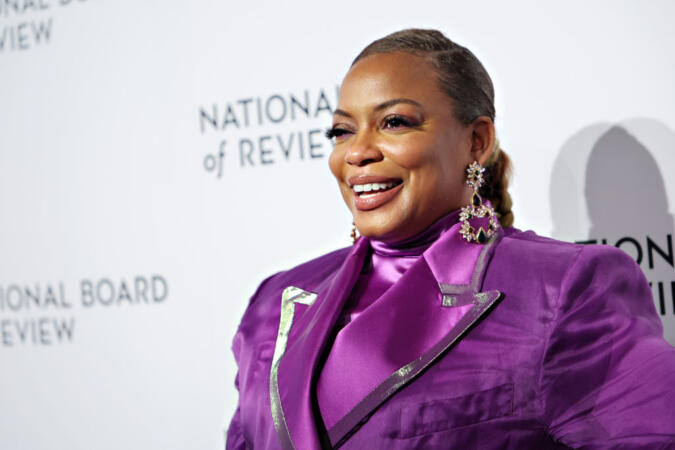Actress Aunjanue Ellis just made it clear that she is very proud of who she is — no matter what other people might think of her.
While accepting her honors at the Essence Black Women in Hollywood Awards back in March, the King Richard star wore a red-hot Dolce & Gabbana suit jacket with the word “Queer” spelled out in rhinestones. Since then, the actress has been very open up about sexuality.
In fact, she recently opened up to Variety about being bisexual, sharing when she realized she was queer, where she was when she fully acknowledged her sexuality, and how she’s currently spotlighting queer characters in her work.
Ellis realized she was queer when she was a young child.
While speaking with Variety, Ellis shared that she was just 8 years old when she became fully aware that she was queer.
The actress shared that as a child, she found herself questioning misogyny in the Bible while attending Sunday school.
“Why does a woman have to be submissive to a man?” she recalled. “And then there was this other thing about me that I also didn’t understand.”
She revealed that that as a teen, she had to “train” herself to be attracted to boys by talking “my body into correct behavior.”
“The solitude of that is so lonely, it’s violent,” she said. “It’s violent because you literally have to tuck and place so many parts of you to be acceptable, so people won’t run from you and don’t want to be around you. It was exhausting. That’s what childhood was like. That’s what adolescence was like. I knew [my sexuality], but there was no template for it; there was no example of it; there was no place for it, and certainly no forgiveness for it.”
Ellis says she didn't acknowledge her bisexuality until she was in her 30s.
Aunjanue Ellis went on to share that she went most of her young adult life keeping her sexuality hidden from the world — including herself.
It wasn’t until she was in a relationship with a man she met in church that she fully acknowledged that she’s bisexual.
“We were just spending time talking and hanging out,” the Quantico actress recalled. “We walked by this stream — those streams in Utah where it snows once, and then it becomes a beautiful, clear, clear stream — and there was a moment when the sun was hitting the water, and I was looking down in the water, and it was so clear, and I can only hear this woman’s voice behind me. I said, ‘This is how I’m supposed to feel. This is what I’ve been waiting to feel my entire life.’”
The actress is currently focused on showcasing queer representation in her work.
Like many actors in Hollywood, Ellis is continuing to take on a multitude of acting roles. However, now that she is more open with her sexuality, the actress plans on expanding her range on queer representation through her work.
“There aren’t a lot of novels about Black queer women,” she said. “There are characters, but the full experience of a Black woman being gay or bisexual, it doesn’t exist, so we’ve got to write it into existence.”
Ellis revealed that she is developing a project about voting and women’s rights activist Fannie Lou Hamer, noting that she plans on spotlighting queer characters who were involved with Hamer’s activism.
“This idea that we just decided to be gay two years ago, or 15 years ago, or 20 years ago is a lie,” she declared. “It is imperative that we see more of that, because it is the truth of who we are. It is not a blemish on who we are. It is the wonderful scope of our humanity as Black folks in this country. It is something that I am insisting on, in what I bring into the world creatively.”
Ellis is on a mission to make Black women and the LGBTQ community proud.
“I want to speak for them and to them in ways where they feel honored, where they feel that I’m doing and saying something that reflects their hopes, their dreams, their fears, their aspirations,” the actress said of who she wants to honor moving forward.
Ellis hopes that now that she’s fully embraced her sexuality, people will start to recognize her as part of the LGBTQ community so she can honor those individuals as well.
“There is an assumption made of me — a presumption made of me. Is it because I’m a Black woman from Mississippi? Is it because I’m older?” she questioned. “I don’t know what the mechanics are that goes into them not processing, or them not just being able to believe that in the same way I am Black, I am queer. This is who I am.”

